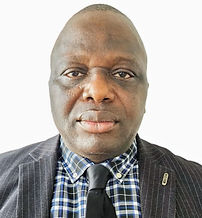Development of resilient cowpea varieties to emerging climatic conditions (waterlogging) in Southwest Nigeria


The IAR&T cowpea breeding team. Left to right: Mr Adanikin Bamidele, Mr Akintunde Adewole, Dr Olaniyi Oyatami and Dr Adenike O. Dada.
PROJECT OVERVIEW
Background
Cowpea (Vigna unguiculata L. Walp) is a staple legume in sub-Saharan Africa, particularly in Nigeria, where it plays a vital role in food security and agricultural livelihoods. However, increasing incidences of waterlogging—caused by erratic rainfall patterns and flooding associated with climate change—severely limit cowpea production in Southwest Nigeria. This project seeks to develop cowpea varieties that are resilient to waterlogging for adaptation to climate change in the region. The project will focus on identifying and integrating waterlogging tolerance traits into high-yielding cowpea varieties using a combination of conventional breeding and molecular tools.
Objectives
-
To assemble available cowpea accessions with potential resistance to waterlogging stress.
-
To screen selected cowpea accessions phenotypically under waterlogging conditions at different growth stages.
-
To identify and characterise genotypes with waterlogging tolerance traits.
PROJECT TEAM MEMBERS

Dr Adenike O. Dada
Principal Investigator, Institute of Agricultural Research Training (IAR&T), Ibadan, Nigeria.
Dr Dada Adenike is a Research Fellow at IAR&T. She specialises in cowpea research, with a focus on improving disease resistance and crop productivity. She obtained her PhD in 2024 from the University of Ibadan, with a thesis on the characterisation of cowpea anthracnose pathogens and the evaluation of cowpea accessions for disease resistance.

Dr Olaniyi Oyatomi
Co-Investigator
Geneticist and Breeder, The International Institute of Tropical Agriculture (IITA).
PROJECT LOCATIONS
Location of Research Station, IAR&T, Nigeria


